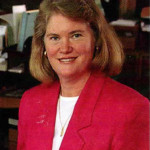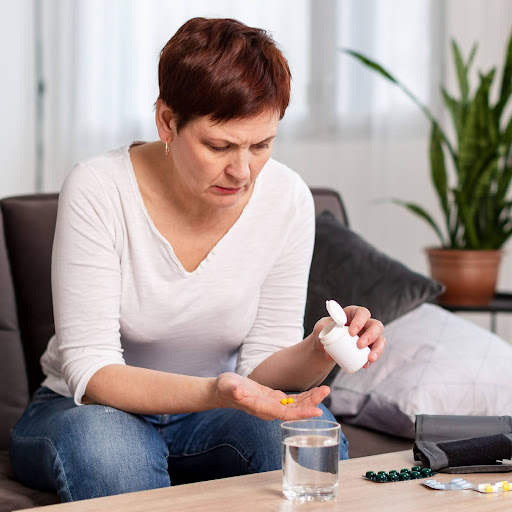
Sex—it’s something we all do and need to maintain a healthy romantic relationship. However, sometime around menopause, many women find that their sex lives are significantly impacted in a negative way. But why? Today, retired HRT compounding pharmacist and women’s health and hormone expert Marla Ahlgrimm uncovers a few answers to common questions about life under the sheets during menopause.
Q: I have always had an active and enjoyable sex life. But lately, I don’t feel the drive as often. What gives?
Marla Ahlgrimm: If you’re over 40, you may be experiencing an estrogen decrease brought on by your changing hormones. Unfortunately, lower levels of this vital female sex hormone can lower your libido and even result in vaginal dryness, which makes it that much harder to want to engage sexually.
Q: Is it normal to have less intense orgasms as I get older?
Marla Ahlgrimm: It is absolutely normal. It’s also normal for it to take longer to become aroused. Physical and hormonal changes can affect how sensitive you are “down there.”
Q: I don’t feel as attractive as I get older, and I don’t think that my partner is as attracted to me. How can I regain my confidence?
Marla Ahlgrimm: First, you have to understand that our looks change and what we consider traditional beauty may fade. That does not mean that you are not beautiful, and that does not mean that you are not desirable. In all honesty, your partner probably finds you just as (or more) attractive now as they ever have. Remember, the changes that you’re going through are all a natural part of life. And while you may not have the body, skin, or hair you had in your 20s, you have experience and are more in tune with your body than you ever could have been at the beginning of your reproductive years.
Q: How do my emotions affect my sexual satisfaction and desire?
Marla Ahlgrimm: Women going through menopause have many emotional changes. You may experience anxiety, depression, or general stress more than you ever have. Each of these can reduce your sexual desire and satisfaction levels.
Q: Is it possible to overcome menopause-induced sexual dysfunction?
Marla Ahlgrimm: Just because you have a lower libido does not mean that you have sexual dysfunction. But, yes, it’s possible to get over many of the hurdles that cause sexual complications in our later years. Estrogen therapy is one option. A vaginal cream or tablet may help alleviate vaginal dryness. Hormone therapy can also help improve your libido, and pelvic floor therapy may improve blood flow to help restore some sensation. Lifestyle changes, such as watching your stress levels and exercising, can also help you feel better about yourself.
Q: How can I talk to my partner about how I’m feeling?
 Marla Ahlgrimm: This is one area where honesty really is the best policy. Let them know that you don’t feel as attractive or desirable. Help them understand ways they can make you feel more comfortable when it’s time to get intimate with them. Think about ways that you can become closer to one another outside of the bedroom so that your desire begins to build up long before the lights go out.
Marla Ahlgrimm: This is one area where honesty really is the best policy. Let them know that you don’t feel as attractive or desirable. Help them understand ways they can make you feel more comfortable when it’s time to get intimate with them. Think about ways that you can become closer to one another outside of the bedroom so that your desire begins to build up long before the lights go out.
Are you struggling with sexual desire during menopause? Marla Ahlgrimm says you are not alone. Don’t be afraid to talk to your doctor or primary health care provider and don’t give up on having a happy and healthy sex life after menopause.








 Marla Ahlgrimm also explained that you have to choose a high-quality supplement from a reputable brand. While collagen is typically considered safe, it’s prudent to know where your products come from and whether or not they’ve been tested and manufactured under strict quality and health conditions.
Marla Ahlgrimm also explained that you have to choose a high-quality supplement from a reputable brand. While collagen is typically considered safe, it’s prudent to know where your products come from and whether or not they’ve been tested and manufactured under strict quality and health conditions.
 Marla Ahlgrimm also points to social and psychological influences that may affect how a woman’s body perceives pain. Women tend to be more susceptible to conditions like migraines and fibromyalgia, and may develop coping mechanisms for pain more readily than men.
Marla Ahlgrimm also points to social and psychological influences that may affect how a woman’s body perceives pain. Women tend to be more susceptible to conditions like migraines and fibromyalgia, and may develop coping mechanisms for pain more readily than men.








 Marla Ahlgrimm has co-authored two ground-breaking books,
Marla Ahlgrimm has co-authored two ground-breaking books,